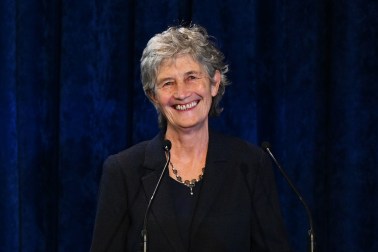John Farquhar of Salisbury writes to say he is irritated. He is not just irritated, he has long been long irritated, which is either a virtue or a vice, depending on the irritant. In his case, the grain of sand in the oyster is the pronunciation ‘by those in the medical fraternity’ of medicine as ‘medcin’. He’d like to know whether this is an affectation — French perhaps — or whether it has some justification.
Mr Farquhar’s name may not be irrelevant here. It’s a good Scottish name, pronounced ‘farkar’, deriving from Celtic elements meaning ‘man’ and ‘dear’. Now in Scotland, even 100 years ago, the predominant pronunciation of medicine was as three syllables. When the Oxford English Dictionary got as far as this part of the letter M, in 1906, it reported that the pronunciation with two syllables was the more common in England, where three syllables were ‘by many objected to as either pedantic or vulgar’. Pedantry and vulgarity are two fine birds to kill with one stone of prejudice.
The dictionary noted that both the two-syllable and the three-syllable versions had been in use since the 14th century. The word came via French, but that doesn’t account for it. Samuel Johnson in his Dictionary (1755), noted: ‘It is generally pronounced as if only two syllables.’ One of the illustrative quotations he chose came from Dryden’s play Aureng-Zebe (1675): ‘I wish to die, but dare not death endure; / Detest the med’cine, yet desire the cure.’ I’m not sure which edition he was quoting, and this matters because not all printed the apostrophe in med’cine. It couldn’t have been the editions of 1732 or 1735, which give medicine, but might have been Tonson’s 1763 collection of Dryden’s dramatic works. Some learned person will know.
In any case, when he brought out his Modern English Usage in 1926, Henry Fowler recommended two syllables, as did his reviser, Robert Burchfield, in 1996. I can’t find that Jeremy Butterfield’s recension of 2015 mentions it.
In answer to Mr Farquhar, then, there is justification for two syllables, but it is not obligatory. When I invite my husband to have a taste of his own medicine, I find my usage is bisyllabic, but then so is his.





Comments